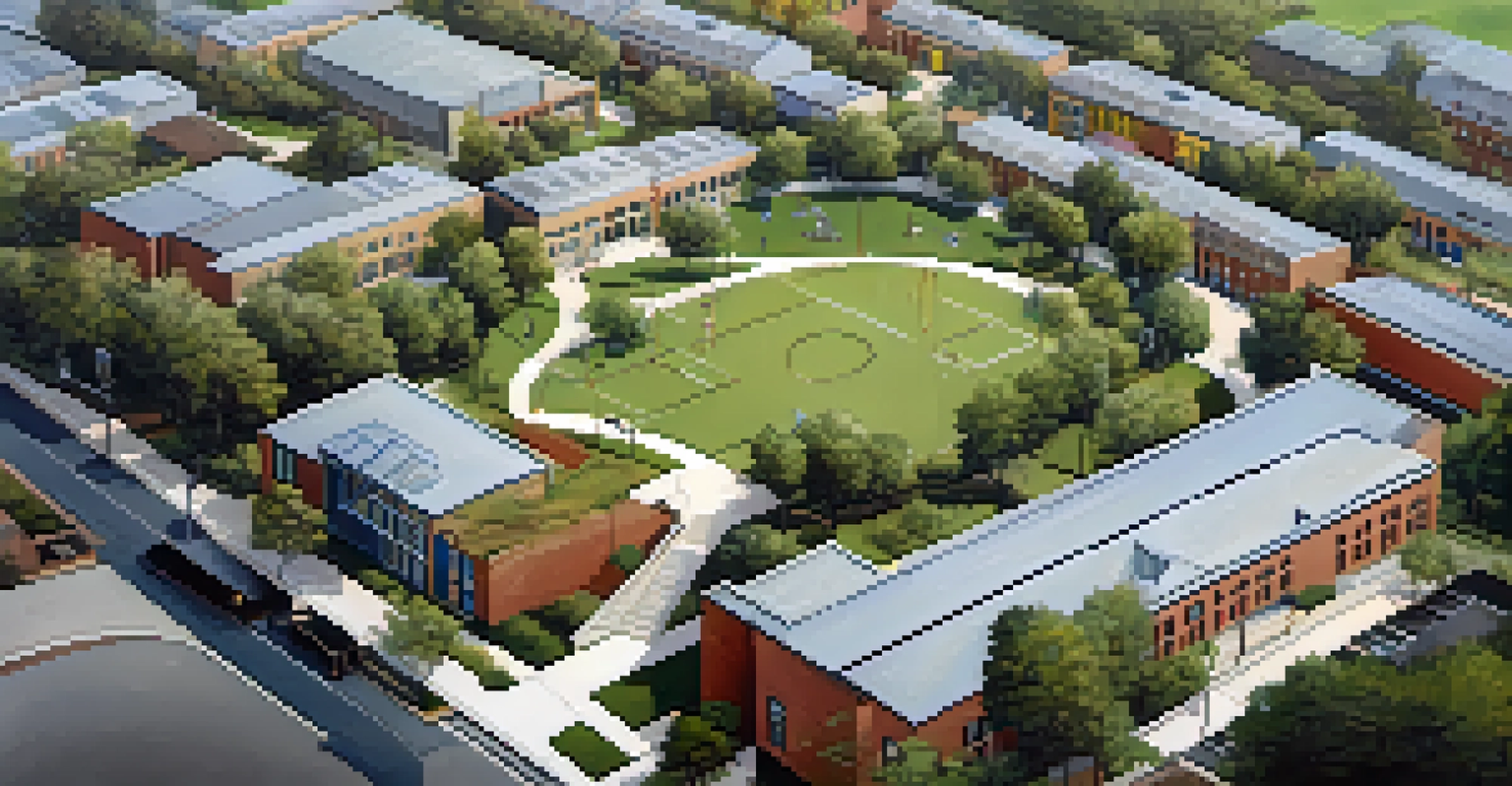Impact of Educational Policies on Missouri's School Systems

Overview of Educational Policies in Missouri
Educational policies in Missouri are designed to shape the learning environment and academic performance in schools. These policies encompass a wide range of regulations, standards, and funding mechanisms that govern everything from curriculum to teacher qualifications. Understanding these policies is crucial as they directly impact students, teachers, and the overall educational landscape.
Education is the most powerful weapon which you can use to change the world.
For instance, recent policies have focused on enhancing STEM education, thus preparing students for a rapidly evolving job market. The emphasis on standardized testing also serves as a tool to measure school performance and accountability. However, these policies can sometimes lead to unintended consequences, such as teaching to the test rather than fostering a love for learning.
The ongoing changes in educational policies are reflective of broader societal trends and challenges faced by educators and students alike. As Missouri continues to adapt its educational framework, it’s essential to assess how these policies affect various stakeholders, from students to parents and teachers.
Funding Disparities in Missouri Schools
One of the most significant impacts of educational policies is the way they influence school funding. Missouri's funding formula often results in disparities between urban and rural schools, affecting resources available to students. Schools in wealthier districts typically receive more funding, which can lead to better facilities, technology, and extracurricular programs.

For example, a student in a well-funded suburban school may have access to advanced placement courses and state-of-the-art labs, while a student in a struggling urban school may lack basic supplies. This inequity can create a divide in educational outcomes, often correlating with socioeconomic status. As policymakers grapple with these issues, finding equitable solutions remains a priority.
Funding Disparities Persist
Missouri's educational policies lead to significant funding disparities between urban and rural schools, affecting resources and student outcomes.
Moreover, initiatives aimed at increasing funding for under-resourced schools can have a positive ripple effect on student achievement. By addressing funding disparities, Missouri can work toward creating a more level playing field, ensuring all students have the opportunity to succeed regardless of their background.
Teacher Recruitment and Retention Challenges
Educational policies also play a crucial role in teacher recruitment and retention within Missouri's school systems. With a growing demand for qualified teachers, especially in underserved areas, policies around teacher training, certification, and support are essential. Unfortunately, many districts struggle to attract and retain talented educators due to low salaries and challenging working conditions.
The function of education is to teach one to think intensively and to think critically. Intelligence plus character – that is the goal of true education.
For example, policies that provide incentives for teachers to work in high-need areas have seen some success, yet the overall shortage remains a pressing issue. Teachers often cite burnout and lack of support as reasons for leaving the profession, which can further exacerbate the challenges faced by schools. Addressing these concerns through thoughtful policy changes is vital for sustaining a strong teaching workforce.
In addition, professional development programs supported by educational policies can enhance teacher skills and job satisfaction. By investing in teachers, Missouri can create a more positive educational environment that ultimately benefits students and enhances learning outcomes.
Impact of Standardized Testing on Students
Standardized testing has become a cornerstone of educational policy in Missouri, aimed at measuring student achievement and school performance. While these assessments can provide valuable data, they also come with significant pressure for both students and teachers. The focus on testing can sometimes overshadow the broader educational goals of fostering creativity and critical thinking skills.
For instance, students may experience anxiety due to the high stakes associated with these tests, which can affect their overall performance and well-being. Teachers, in turn, may feel compelled to prioritize test preparation over more engaging and diverse teaching methods. This can lead to a narrow curriculum that doesn't fully meet the needs of all students.
Teacher Retention Remains Challenging
Low salaries and challenging working conditions hinder teacher recruitment and retention in Missouri, particularly in underserved areas.
As discussions around the efficacy of standardized testing continue, some educators advocate for alternative assessment methods that capture a wider range of student skills and abilities. By re-evaluating the role of testing in education, Missouri can better support student learning and development.
Influence of Technology on Educational Policies
The integration of technology into education is reshaping how policies are developed and implemented in Missouri's schools. With the rise of online learning platforms and digital resources, policies must adapt to ensure that both students and teachers have access to the necessary tools. This shift has become particularly evident during the pandemic, where technology played a pivotal role in maintaining educational continuity.
However, the digital divide remains a concern, as not all students have equal access to technology and high-speed internet. Educational policies need to address these gaps to prevent further inequities in learning opportunities. For instance, initiatives that provide devices to low-income students can help bridge this divide and enhance educational access.
Furthermore, ongoing professional development in technology for educators is essential to maximize the benefits of digital tools in the classroom. By embracing technology thoughtfully, Missouri can enhance the educational experience and prepare students for a future where digital literacy is crucial.
Parental Involvement and Educational Outcomes
Parental involvement is a key factor influencing student success, and educational policies in Missouri are increasingly recognizing its importance. Policies that encourage family engagement can lead to improved academic performance and a more positive school climate. For example, initiatives that facilitate communication between parents and teachers can help parents support their children’s educational journeys.
However, barriers such as language differences, work schedules, and lack of understanding about the education system can hinder parental involvement. Educational policies must consider these challenges and create inclusive strategies to engage all families effectively. By fostering a collaborative approach between schools and families, Missouri can enhance student outcomes.
Standardized Testing's Pressure
The focus on standardized testing in Missouri creates significant pressure on students and teachers, often overshadowing broader educational goals.
Moreover, when parents are actively involved in their children’s education, it can lead to higher levels of motivation and achievement. Policies that promote this partnership can create a supportive ecosystem where students thrive academically and socially.
Future Directions for Missouri's Educational Policies
Looking ahead, Missouri's educational policies will need to evolve to meet the changing needs of students and society. This includes addressing ongoing challenges such as equity in funding, teacher shortages, and the integration of technology in classrooms. Policymakers must remain responsive and adaptable, drawing on data and feedback from educators, parents, and students alike.
Future policies should aim to create a more holistic approach to education, one that not only focuses on academic achievement but also considers social and emotional learning. By prioritizing the well-being of students, Missouri can cultivate a more supportive and effective educational environment.

Additionally, collaboration between various stakeholders—schools, communities, and government—will be essential in shaping the future of education in Missouri. By working together and embracing innovative solutions, the state can ensure that its educational policies foster success for all students.